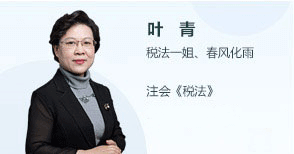As a medium of exchange, money permits the separation of exchange into the two distinct acts of buying and selling, without requiring the seller to purchase goods from the person who buys his products, or vice versa. Hence producers who know they will he paid in money, can concentrate on finding the most suitable outlet (销路) for their goods, while buyers who will pay in money, can concentrate on finding the cheapest market for the things they wish to purchase.
Specialization, which is vital to an advanced economy, is encouraged, because people whose output is not a complete product but only a part of one in which many others are involved can be paid an amount equivalent to their share of the product.
Another advantage of money is that it is a measure of value--that is, it serves as a unit in terms of which the relative values of different products can be expressed. In a barter economy it would be necessary to determine how many plates were worth one hundred weight of cotton, or how many pens should be exchanged for a ton of coal. which would be a difficult and time-consuming (费时的) task. The process of establishing relative values would have to be undertaken for every act of exchange, according to what products were being offered against one another, and according to the two parties′ desires and preferences. If I am trying to barter fish for bananas, for example, a lot would depend on whether the person willing to exchange bananas is or is not keen on fish.
Thirdly, money acts as a store of wealth. It is difficult to imagine saving under a barter system. No one engaged on only one stage in the manufacture of a product could save part of his output, since he would be producing nothing complete. Even when a person actually produced a complete product the difficulties would be overwhelming. Most products deteriorate fairly rapidly, either physically or in value, as a result of long storage; even if storage were possible, the practice of storing products for years on end would involve obvious disadvantages-imagine a coal-miner attempting to save enough coal which of course is his product, to keep him for life. If wealth could not be saved, or only with great difficulty, future needs could not be provided for, or capital accumulated to raise productivity.
1. Using money as a medium of exchange means that
A. you have to sell something in order to buy something
B. you have to buy something in order to sell something
C. you don′t have to buy something in order to sell something
D. the seller and the purchaser are the same person
2. Specialization is encouraged because
A. people can use their money to buy whatever they want
B. people do not need to make a complete product for exchange
C. people make a great contribution to the manufacture of a product
D. people cannot use their money to buy whatever they want
3. A barter economy is one in which
A. value is decided by weight
B. value is decided by number
C. money is used and goods are not exchanged
D. goods are exchanged and money is not used
4. If one had to save products instead of money,
A. this would need years of practice
B. coal, for example, would lose its value
C. they could not be stored for years on end.
D. many products would lose their value
5. How many advantages of money are mentioned in this passage?
A. Two.
B. Three.
C. Four.
D. Five.
习题推荐:
2012年工程硕士GCT英语考试阅读理解习题汇总
2012年在职工程硕士阅读强化练习及答案汇总
2012年在职GCT英语预测试题及答案汇总
2012年工程硕士GCT英语辅导专栏汇总
2012年在职工程硕士填空练习及答案汇总
特别推荐:登录考试大会员中心,体验全新“考试应用”: 免费在线模考 资讯订阅 名师问答 ,助您快速通关!














